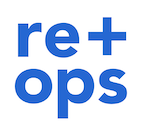3 ResearchOps Questions for Lisa Bogert-O’Connor, Udemy
A ResearchOps Member Spotlight — Bringing a mixed-method research background to ReOps, avoiding the temptation of quick fixes when setting up operations, and aiming to better socialize research to wider audiences.
Our ResearchOps community is made up of members with diverse backgrounds, working on varied operations in their organizations, with dreams of advancing researchers’ craft even further. By spotlighting individual members, we grow awareness of common challenges and new strategies to think bigger about ResearchOps.
—
3 questions for Lisa:
1. How did you get started in ResearchOps? What background do you bring to your current role?
I started my career in academia, but found I wasn’t really cut out for the sometimes-isolated nature of the industry and found opportunities in the non-profit and consulting spaces in Washington, D.C. Though my roles varied, I primarily focused on strategy and client management. I loved the cross-collaboration required to solve problems and these roles pushed me to adapt and embrace ambiguity. After a transatlantic move to Dublin, Ireland I found a role in customer success at Udemy, the online learning and teaching marketplace. (I also found a few pubs)!
We have an incredible culture at Udemy that supports our career growth and because of this, I was encouraged to speak with our Head of Research and apply for a newly created research operations role. While I was trained as a mixed methodology researcher, I don’t come from a traditional UX background. I think this is a unique component for my fit in ResearchOps and aligns with the diverse experiences of the research team.
2. Which aspects of ResearchOps have you focused on, and what advice do you have for people getting started on the same?
ResearchOps is such a nascent field, and like many of us in this community, I’m collaborating with my team to build out a brand-new function at our organization. The first thing I did when I started the role was go on a “Listening Tour” and I met with as many people as possible. In addition to context building, I got to know the members of the team and personally connect with them. (This is a critical way to learn who has fur babies that join Zoom meetings and who can bake delicious treats for offsites)!
After sharing the findings of the tour, I built a roadmap of projects and began diving into the most critical areas of need based on our organization’s OKRs and team capacity. I’ve made strong strides in our recruitment process by including various stakeholders across the business to ensure buy-in and engagement through the creation of liaison roles, workshops, and programs. I’m currently working on rebuilding our team’s Wiki page to better outline our processes, tighten our communications, and clarify our functional areas. I’m also building our stakeholder relationships to ensure we’re effective cross-functional partners.
Some of these process improvements can be slow and arduous, however the advice I’d give to anyone getting started in this space is to avoid the temptation to build processes or enact changes that are only quick fixes. Setting up a research operations function can be daunting because of the number of “unknowns”, but some of the biggest wins I’ve had so far have been building lasting processes that will impact the support and scale of our research.
3. What would you like to see as the next big thing for ResearchOps in your organization?
We’re really building this from the ground up and once we’ve set up the most critical process improvements, I’d love to investigate tools and approaches that better socialize our research to wider audiences in the organization. How can this be done creatively? A new research repository? Atomic research? I’m incredibly excited to bolster the way we share our insights — with an overarching aim of increasing our team’s visibility.
Additionally, we have the privilege of working for a purpose-driven company and each of us has our own unique experiences that brought us here. I’d love to see how research operations can support capability building on the research team and create space for researchers to grow their considerable talents.
—
You can find Lisa in our ResearchOps slack community and on Linkedin: https://www.linkedin.com/in/lisa-bogert-o-connor-262a0487/
—
Curious about how other community members answered our three questions?
View ResearchOps member spotlight articles
